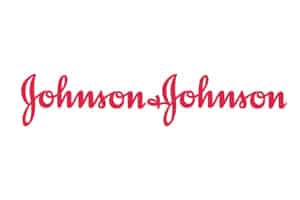
Johnson & Johnson has bagged an FDA approval for Erleada in metastatic castration-sensitive prostate cancer (mCSPC), gaining an advantage over main rival Xtandi from Astellas/Pfizer.
Androgen inhibitor Erleada (apalutamide) is J&J’s follow-up up to big-selling prostate cancer therapy Zytiga (abiraterone acetate), which has been in a market battle for years with Xtandi (enzalutamide) and also saw generic competition arrive in the US last year.
Approval in mCSPC – which is diagnosed in around 40,000 people in the US every year – gives J&J’s drug another area to build sales free of competition from Astellas and Pfizer’s drug as it tries to position Erleada as a successor to Zytiga. The FDA previously granted a priority review for the drug in this indication.
Erleada was approved for non-metastatic castration-resistant prostate cancer (nmCRPC) last year, and had just a few months of grace before Xtandi also got a green light for this indication, setting up a head-to-head battle for market share.
At the moment that is a David and Goliath contest, with Xtandi growing around 16% to top $3.6bn in global sales last year while Erleada still doesn’t have its sales broken out in J&J’s financial reports.
Meanwhile, Zytiga – which is only approved for metastatic CRPC – pulled in $3.5bn last year, but the start of generic competition in late 2018 was evident in a 21% slump in the first-half 2019 sales to $1.38bn.
Since then, Bayer and Orion’s Nubeqa (darolutamide) has also joined the fray in nmCRPC after an FDA approval in July, adding to the competitive pressure in that indication.
mCSPC is uncharted territory for Erleada’s rivals, accounting for a sizeable population of prostate cancer patients with advanced disease but whose tumours still remain sensitive to treatment with older drugs (androgen-deprivation therapy). In many cases, ADT alone isn’t sufficient to keep the disease under control.
Just 10% to 20% of prostate cancer cases are castration-resistant, so the castration-sensitive indication is seen as being pivotal if J&J is to achieve its blockbuster sales predictions for Erleada.
The FDA based the new indication on results of the phase 3 TITAN study, which included 1,052 patients and compared Erleada to placebo given on top of ADT. The study found that Erleada reduced the risk of death by 33% compared to the control group. Two-year overall survival (OS) rates were 84% and 78%, respectively.




